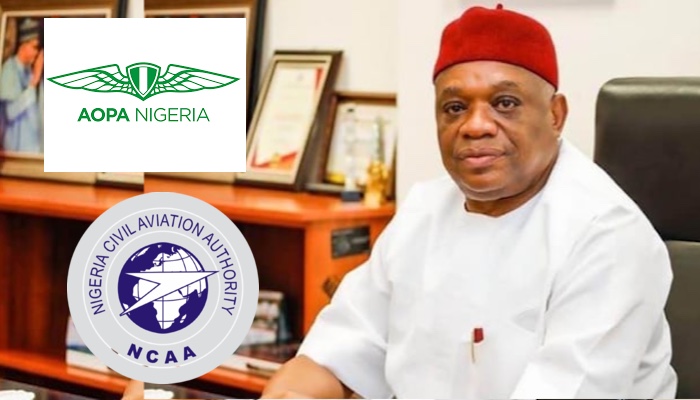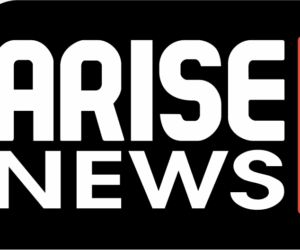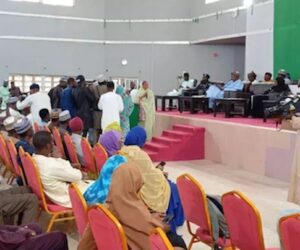The Nigeria Civil Aviation Authority (NCAA) on Thursday debunked Senator Orji Kalu’s allegation on the floor of the Senate that pilots and plane crews were involved in substance abuse and that the Authority does not do proper checks.
The Director General, NCAA, Captain Chris Najomo, while reacting to the allegations, hinted that contrary to the impression created, the Nigeria Civil Aviation Authority maintains a rigorous and internationally recognised system for certifying and monitoring the medical and professional fitness of all pilots operating in Nigeria.
Najomo stated that no pilot is permitted to operate a Nigerian-registered aircraft without holding both a valid pilot licence and a current medical certificate, as required by the Nigeria Civil Aviation Regulations.
He added that holders of Commercial Pilot Licences (CPL) and Airline Transport Pilot Licences (ATPL) are, by the provisions required to possess a class 1 medical certificate before they are allowed to operate.
“These medical certificates are issued only after comprehensive aero-medical evaluations by NCAA Authorised Aviation Medical Examiners (AAMEs) followed by approval of the medical report by NCAA’s in-house aero-medical assessors.
“The scope of these examinations is extensive. It covers cardiovascular, neurological, psychological, metabolic, respiratory, and visual assessments to ensure that the pilot is fit to operate an aircraft safely. Nig. CARs Part 2.11.2.6 (b) details the physical and mental requirements that must be met before a medical certificate is issued.”
“The regulation makes it clear that an applicant must not suffer from any disease or condition that could suddenly render them unable to perform flight duties safely. It also screens for the use of psychoactive substances, mental or behavioural disorders, abnormal blood pressure, heart or lung diseases, neurological disorders, and other physiological conditions that could affect safe performance.
“Medical certificates are valid for 12 months for pilots under 40 years of age and six months for those aged 40 and above. At the expiration of these periods, pilots must undergo a new series of medical tests before their certificates can be renewed”, the NCAA stated.
In addition to this, it said that Nig. CARs Part 8.5.1.5 explicitly prohibits any crew member from acting as a flight crew member within eight hours after consuming alcohol, while under the influence of alcohol, or while using any psychoactive substance that could affect alertness, judgement, or performance.
“In accordance with this regulation, the NCAA carries out on-the-spot alcohol or drug testing when there is reasonable suspicion of intoxication. It further authorises random and unannounced testing for crew members and allows the results of such tests to be used as legal evidence.
“Beyond the medical certification process, NCAA inspectors conduct daily ramp inspections at airports across the country. These inspections are not limited to aircraft alone; they include direct engagement with flight crew.
“During these inspections, inspectors verify crew licences, medical certificates, and general fitness for duty. Any irregularity is immediately addressed, and appropriate enforcement action is taken in line with the Authority’s zero-tolerance policy for safety violations”, it added.
The NCAA stated that only recently, in August 2025, the NCAA suspended the licence of a ValueJet pilot for initiating departure procedures without proper clearance, an example that underscores the authority’s uncompromising commitment to safety and discipline.
“It is therefore inaccurate to suggest that pilots operate under the influence of substances or without adequate checks.
“The processes in place are not only thorough but also consistent with global standards prescribed by the International Civil Aviation Organization (ICAO). Nigeria’s aviation oversight system has consistently met ICAO audit requirements under the Universal Safety Oversight Audit Programme (USOAP), placing the country among those maintaining effective safety supervision systems,” the Authority said.
Also, with regard to the senator’s comments suggesting that modern airplanes take off and land automatically, the NCAA clarified that while many modern aircraft are equipped with advanced autopilot and autoland systems, these systems do not replace pilot control.
“Take-offs are entirely manual operations carried out by the flight crew. Autopilot functions are only activated after take-off, usually when the aircraft reaches a safe altitude. Similarly, although some aircraft have autoland capabilities, these are used only under specific weather and airport conditions and always under pilot supervision.
“Nigeria does not currently have any airport certified for Category III (CAT III) operations, which are required for fully automatic landings in low-visibility conditions. Therefore, all landings within Nigerian airspace are manually executed by pilots,” NCAA said.
Meanwhile, Nigerian pilots under the aegis of the National Association of Aircraft Pilots and Engineers (NAAPE) have condemned the allegation by Kalu, who alleged on the floor of the Senate on Wednesday that some pilots used illicit drugs before embarking on a flight.
The pilots, who were peeved by the allegation, directed Kalu, who operated the now defunct SLOK Airlines, to either substantiate the allegation with verifiable evidence presented to the appropriate statutory government agencies or withdraw the statement and apologise to Nigerian pilots.
In a statement signed by the Public Relations Officer of NAAPE, Blessing Ahmadu, the pilots refuted the allegation and pointed out the implications of such allegation, saying it was inaccurate and misleading to suggest that pilots routinely engage in drug use or report to duty under the influence of substances.
“NAAPE categorically and emphatically refutes the broad allegation that Nigerian pilots routinely fly under the influence of narcotics. These baseless claims, which constitute a malicious attack on the professionalism, integrity, and reputation of Nigerian aviation professionals, are not only false but represent a dangerous misrepresentation of the rigorous safety standards that govern Nigerian aviation operations.
“As the professional body representing all licensed pilots and aircraft engineers in Nigeria, NAAPE considers safety as the foremost priority in all aspects of aviation practice. Every pilot in the country is bound by strict regulatory, medical, and ethical standards established by the NCAA, in line with ICAO requirements.
“These standards prohibit the use of any psychoactive substances and subject pilots to regular and random drug and alcohol testing as part of their medical certification and recurrent assessment processes.
“We also express our confidence in the safety oversight functions of the NCAA and its leadership, whose consistent enforcement of global best practices continues to uphold the integrity of the Nigerian aviation system,” the statement stated.
Chinedu Eze and Kasim Sumaina
Follow us on:








